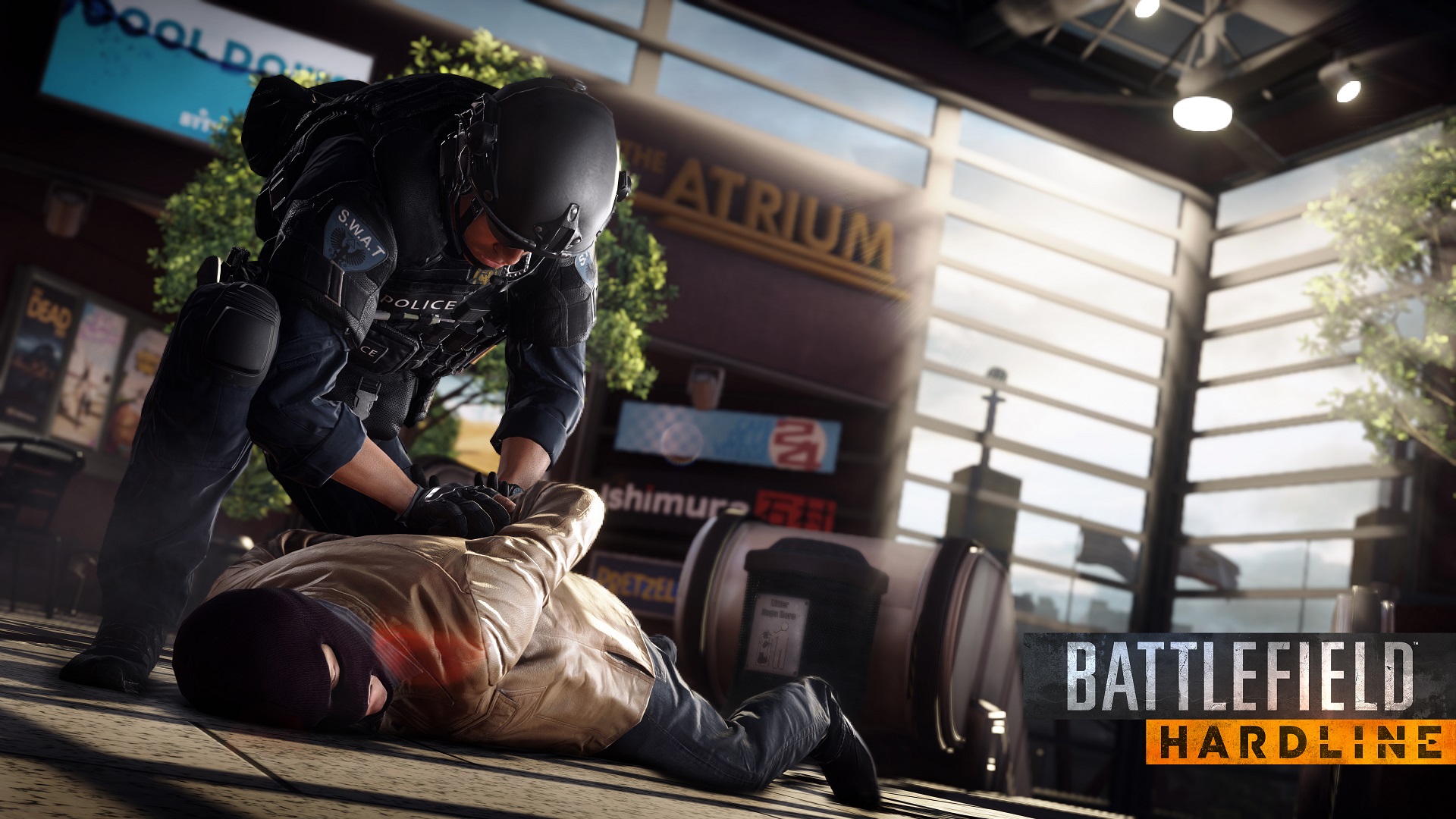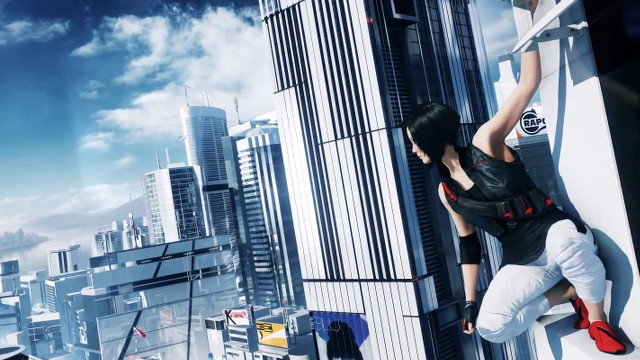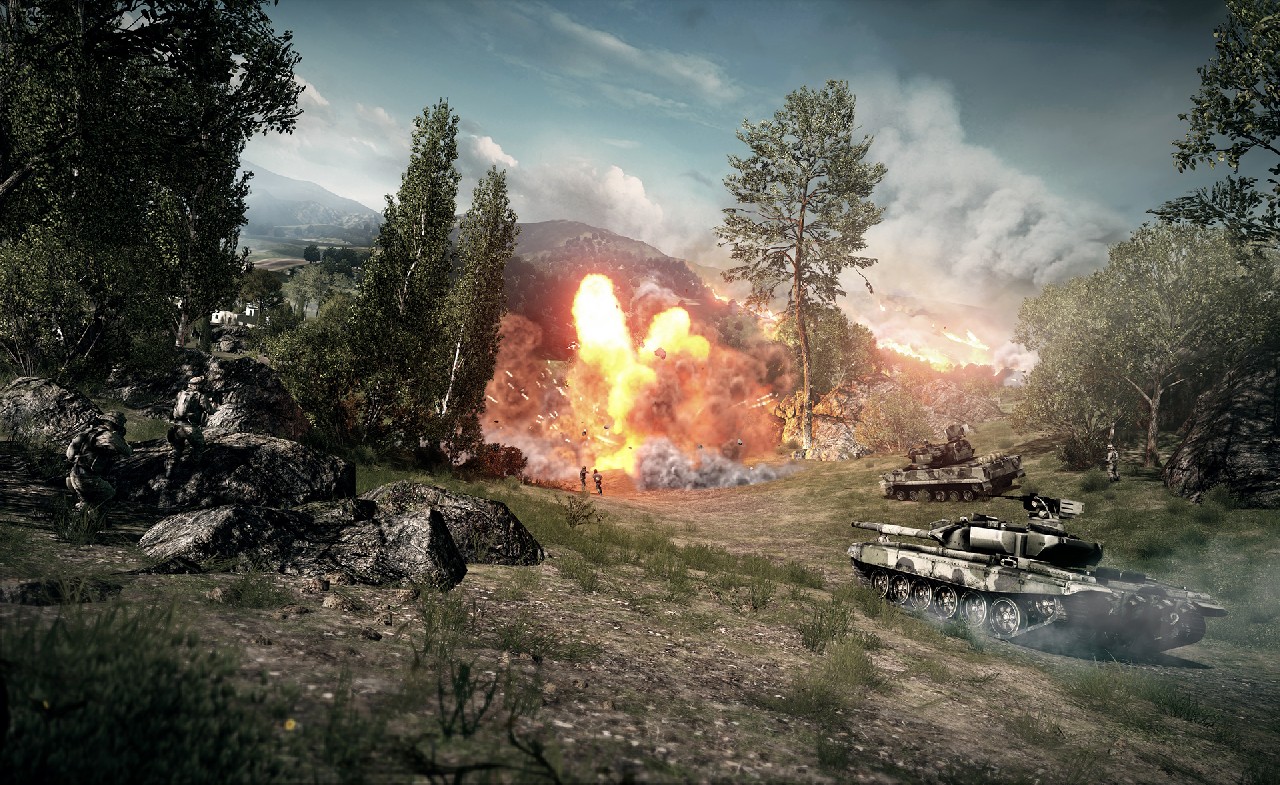I’ve been a big fan of DICE since getting the original Battlefield 1945 as part of a complete collection including expansion packs and new maps, but it’ll always be that first flight or the first blast from the tank barrel that’s kept me on board all these years. I doubt many other gamers would disagree. When it comes to first-person shooters, both in presentation and playability, DICE never really fails to deliver.
Regardless, 2015 starts with Battlefield in development at Visceral Games, both stylistically and structurally apart from a franchise known for destructibility. With Star Wars: Battlefront coming from the studio next and one of my favorite cult classics hailing from deep within the company’s design teams, it’s no wonder I wanted to shine a light in our month-long developer spotlight.

Eager Gamer
Anything I write about DICE will be colored by the reaction fans have had in spades for games like Battlefield 3 and Battlefield 4. Each of them show powerful next-gen graphics thanks to Frostbite 3 and its numerous advancements. With or without consideration to playtime or player-counts, these games caused huge stirs in online communities before release. With DICE taking risks and testing these online interactions in beta environments, it’s not difficult to understand rough launches or lengthy patch notes detailing squashed bugs and more.
In fact, you could say that the beta test period has become a staple of Battlefield, though there’s a strong differentiating factor in exactly what’s discovered. Players may learn their favorite map positions or their favorite weapons, but DICE usually proves themselves coding masters. To launch a massive 64-player multiplayer game on new console hardware in any state (playable, broken, connectivity errors, or otherwise) is always a massive undertaking. I like to measure anticipation for DICE’s games with three metrics:
- Deaths-per-Round: Am I dead more than 10 times in a single match? Was I playing conservatively? Did I embarrass my team or manage to revive a few folks in my various lives?
- Players-per-Squad: Have the squads in beta servers filled up? Are there any shortages of players communicating via chat headset online? When joining a match, how many people have connected to the server ahead of me?
- Hours-in-Beta-vs-Hours-in-Retail: If I’m reviewing a Battlefield game, how many hours was I motivated to spend in a beta test period versus the time I’m eager to spend on the full retail release?

Having a Blast
While those metrics often only apply to Battlefield games, they stand as important measures of confidence in any developer you think about and remain valid stats depending on the genre and content. Still, DICE have a few ways of reeling me in with progression over muzzle compensation or even barrel muffling. All of the weapons in-game feel distinct and powerful, but they’ve also got scores of accessories. It’s to that end that something like Hours-in-Beta-vs-Hours-in-Retail changes slightly when talking about any other product from the studio.
Take that statistic and Mirror’s Edge, for example. It leaves you to wonder about player behavior throughout the gaming industry in its own way. For one, Mirror’s Edge does not use death as a mechanic unless you’re facing enemies (arguably one of the game’s weakest points) or about to fall off a tall building. In that way, the statistic changes slightly to account for what real challenge exists with the purpose of offering real excitement and/or elation. Player growth (particularly in Battlefield) becomes the standard by which the thumbs or mouse and keyboard manipulators (literally, your digits) measure themselves.
For Mirror’s Edge, the stat becomes Hours-in-Story-vs-Hours-in-Time-Trials. I spent a lot of time in the game’s racing-focused trials, but I never got as good as some players topping the leaderboards. It didn’t change my own perception of “fun” in-game, given that fun in Mirror’s Edge is obviously a relative factor and the comments below this article may have room for that kind of discussion. More over, it did successfully challenge my perception of first-person gaming.

Development in View
It’s funny to think that a game so unfocused on shooting has deeply challenged first-person mechanics at large. Mirror’s Edge, whether or not the sequel ever arrives, forever changed the way gamers expect to move about in first-person video gaming. Do you look down and see more feet in your shooters? Do you see more idle hand animations not involving a magazine check? Do you see your body move over a railing or other piece of geometry more often?
That mantle animation, the one where the player’s character’s legs fly over a piece of walkway railing or a concrete barrier, becomes more and more important when we think of escaping a fight. Somehow, we become easily engrossed in the virtual reality setting concocted by the likes of the mad men and women at DICE. The animations accomplish this easily, even if taking the camera out of first-person in PC versions of Mirror’s Edge results in a horrifying effect. It's to DICE's credit that the heroine of a game like Mirror's Edge still imparts that feeling of ownership, give how difficult it is to translate parkour with a first-person view.
This Developer Spotlight has focused largely on how and why DICE matters, as opposed to how and why its products matter. Battlefield stands on its own, with or without the recognition some gamers have for the studio behind it, but it’s been nearly four years since anything else came from the developer. You’d have to reach back to 2008 to find Mirror’s Edge, though only 2010’s Need for Speed: Hot Pursuit offers anything outside of a first-person view from the studio.
What further details could DICE offer its development contemporaries? Does Battlefield continue to exist as an experiment and an exploratory mission into how we connect with action? I’d like to think so as Battlefield Hardline adds new ways of interacting with vehicles, new types of weaponry, and new game modes with objectives stretching beyond holding capture points. We’ll still be able to blow up MCOM stations of some kind, but it’s refreshing to see a dynamic shift in at least what narrative the franchise hopes to present the player with.







